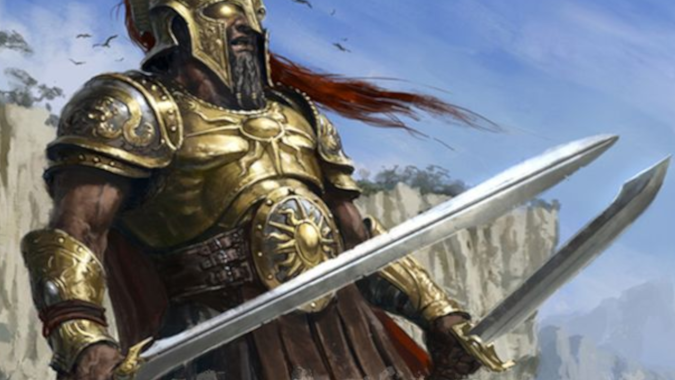The One D&D Playtest continues with Expert Classes, giving us a preview of Bards, Rangers and Rogues
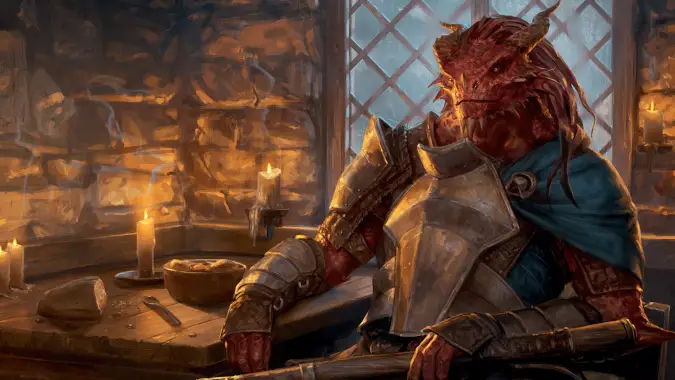
Released in the familiar Unearthed Arcana format, the Expert Classes playtest document for One D&D presents changes to the entire structure of classes in the game with the creation of Class Groups. Each Class Group has three of the original Player’s Handbook classes from 2014 in it. This particular playtest features the Experts, showcasing changes to the Bard, Ranger and Rogue classes.
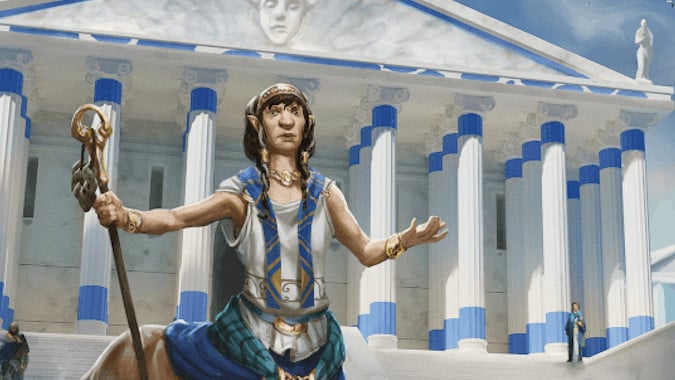
What are Class Groups? Which Group is my favorite Class in?
The post helpfully broke down the Class Groups.
- Expert Classes — These are classes that have the Expertise class feature and abilities from other classes. Bards, Rangers and Rogues are in this group.
- Mage Classes — One D&D has created three types of magic — Arcane, Divine, and Primal. The classes of this group channel Arcane power and use it to harry, confuse, and destroy their foes. Sorcerers, Warlocks, and Wizards are Arcane Classes.
- Priest Classes — Masters of Primal and Divine magic, the Druids, Clerics and Paladins of this group can heal or kill with these potent magics, but usually call upon higher powers like the natural world, a pantheon of divinities, or even their own sworn oaths.
- Warrior Classes — They hit things and can take a hit in return, or block or dodge it instead. These are the front line smackers of faces and kickers of butts, the Barbarian, Fighter, and Monk classes.
While there’s no specific rules about being in an Expert Class, the playtest document mentions that these class groups may be used as prerequisites for feats or attuning to magical items as the playtest goes on.
In addition to this change, we get the previews of the three Expert Classes themselves, which makes up the bulk of this playtest, as well as feats, new spell lists, and a rules glossary similar to the one from the previous One D&D playtest document on Character Origins. So what’s the differences between these versions of the classes and the 2014 versions?
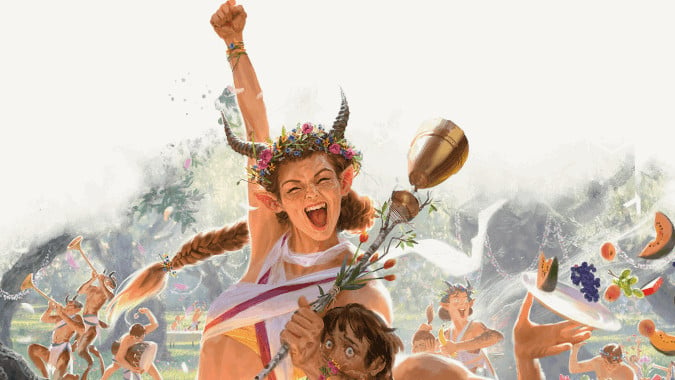
In-depth changes to Expert classes: Bards, Rogues, and Rangers
Jacks of all trades, Bards are the Swiss Army Knives of D&D
If you’re worried your Bard will be unrecognizable, that’s a worry you can put to rest. The addition of Expertise to the class at level 2 pushes Jack of All Trades back to level 5, but it also means you’re even better at a variety of things overall. Also, the somewhat unwieldy Songs of Rest are replaced by the Songs of Restoration feature, letting you add various healing spells to your spell list without worrying about preparing them or counting them against your prepared spells limit. Magical Secrets and Bardic Inspiration are still there, and your formerly level 20 capstone is now available at level 18, so don’t worry about your Superior Bardic Inspiration.
Rogues remain stabby and sneaky
Rogues also feel pretty similar. Stroke of Luck moves to level 18 to make room for an Epic Boon at level 20, but otherwise all the greatest hits — Sneak Attack, Cunning Action, Uncanny Dodge, Evasion, Expertise and Reliable Talent — they’re all there. The Thief Subclass isn’t as focused as the current Arcane Trickster, Assassin or Inquisitive Rogue Archetypes, but if you’re looking to steal things, be it from tombs or greedy nobles, it’s a solid choice. Then again, Rogues are already doing pretty well — they might be the most well rounded class in 5th Edition D&D, so it’s fair to say not a lot of change was warranted.
The Ranger integrates Tasha’s Cauldron of Everything changes
The Ranger gets the most work in my opinion, and overall I think it’s warranted. They get their spells immediately at level 1 instead of waiting for level 2. Also at level 2 they get an improved Favored Enemy feature that allows them to always have Hunter’s Mark prepared, it doesn’t count against their prepared spells limit, and they don’t have to concentrate on the spell once it’s cast, letting them actually use it and cast other spells in combat without worrying about accidentally cancelling their Hunter’s Mark. Roving and Tireless from the Tasha’s Cauldron of Everything update to Rangers are now baseline, while Expertise replaces the Canny benefit. Hide in Plain Sight and Vanish are replaced with Nature’s Veil, letting you expend a spell slot as a bonus action to turn Invisible. Foe Slayer moves to level 18, making your Hunters Mark hit for 1d10 instead of 1d6, and you get an epic boon at level 20.
The Hunter subclass presented in this document is just the older one without as many choices per level of subclass abilities gained. Options like Colossus Slayer, Multiattack Defense and Whirlwind Attack aren’t present. I kind of wish they’d decided to showcase Beast Mastery, especially because the Drakewarden really should have been a wake up call for how Rangers and Pets should interact.
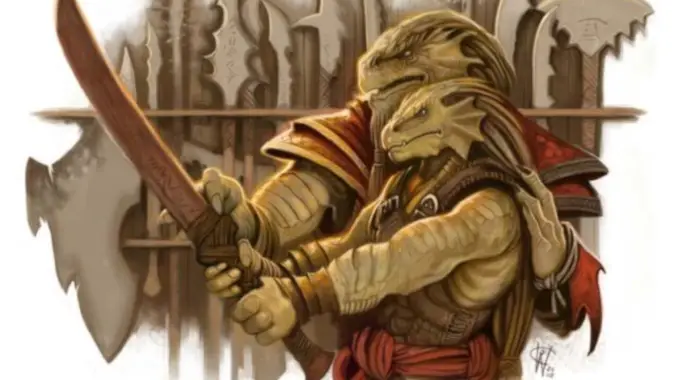
Feats are slightly changed, for better or worse
Feats are cleaned up, and instead of having an Ability Score Improvement slot with the option of a feat choice, you have a feat choice at various levels — five feat choices for Bards and Rangers, six for Rogues. One of the feats can be the Ability Increase feat, allowing you +2 to one stat or +1 to two, if you can’t think of a feat you’d rather have. Dual-Wielder swaps out its current +1 to AC for +1 to Str or Dex, but is otherwise unchanged. Other feats, like Athlete have been rebalanced as well — now it grants a Climb speed, still lets you get up from prone for 5 feet and gives you advantage on all jump checks in addition to +1 to Str, Dex or Con. Feats like Great Weapon Master add a +1 to Str now, but rather than taking a -5 to hit and gaining a +10 to damage, there’s no penalty to the attack roll but the damage added to the roll isn’t +10, but is your Proficiency Bonus and can only be used once a round.
Overall it feels like these Feats are trying to smooth out and even lower player damage while also adding a benefit that makes them competitive against an ability score increase. A +2 to Str is still compelling, but a +1 to Str, a cleave attack on a critical hit or a kill, and more damage per an attack is more compelling. I suspect a lot of players will be salty about the loss of damage though. Even a level 20 Barbarian is going to lose 4 damage per round to this change.
Epic Boons, Keen Mind, and even more
But this new document added even more changes and fixes urelated to Class Groups. Keen Mind got a significant rework that I half suspect is Liam O’Brien’s fault. The new Keen Mind completely dumps the flavor text from the current version, so no more remembering everything you see or hear for a month, or always knowing what direction north is, or exactly when sunrise/sunset are. Now you get +1 to Int, the Study action as a Bonus Action, and Proficiency with one of the ‘Knowing Stuff’ skills, like Arcana, History, Investigation, Nature or Religion. If you already have the skill in question, you get Expertise in it. So it’s still good, but it lacks that ability to make your DM cry by telling him you have Keen Mind and thus remember everything that your character saw and heard including the map with the evil guy’s plans on it.
There are also Epic Boons, special level 20 feats that let you do things like deciding to hit on an attack roll that you rolled a miss on, just automatically succeeding on any Death saving throw that isn’t a 1, increasing your move speed by an additional 30 feet, or even being completely undetectable even to spells or magical senses when you are sneaking. Epic Boons are level 20 feats only, so you only get one for the most part — at least the classes in this particular playtest document don’t get a second.
There’s a lot to examine in this playtest. There have already been some changes rolled back from the last playtest document — the D20 Test mechanic no longer always succeeds on a 20 and fails on a 1 when making a Skill or Ability check, for example. You still get Heroic Inspiration if you roll a 1, though. It’s definitely a big document with a lot to look over, and I hope I get to take the new Ranger out for a spin at some point.
Please consider supporting our Patreon!
Join the Discussion
Blizzard Watch is a safe space for all readers. By leaving comments on this site you agree to follow our commenting and community guidelines.
 @MatthewWRossi
@MatthewWRossi